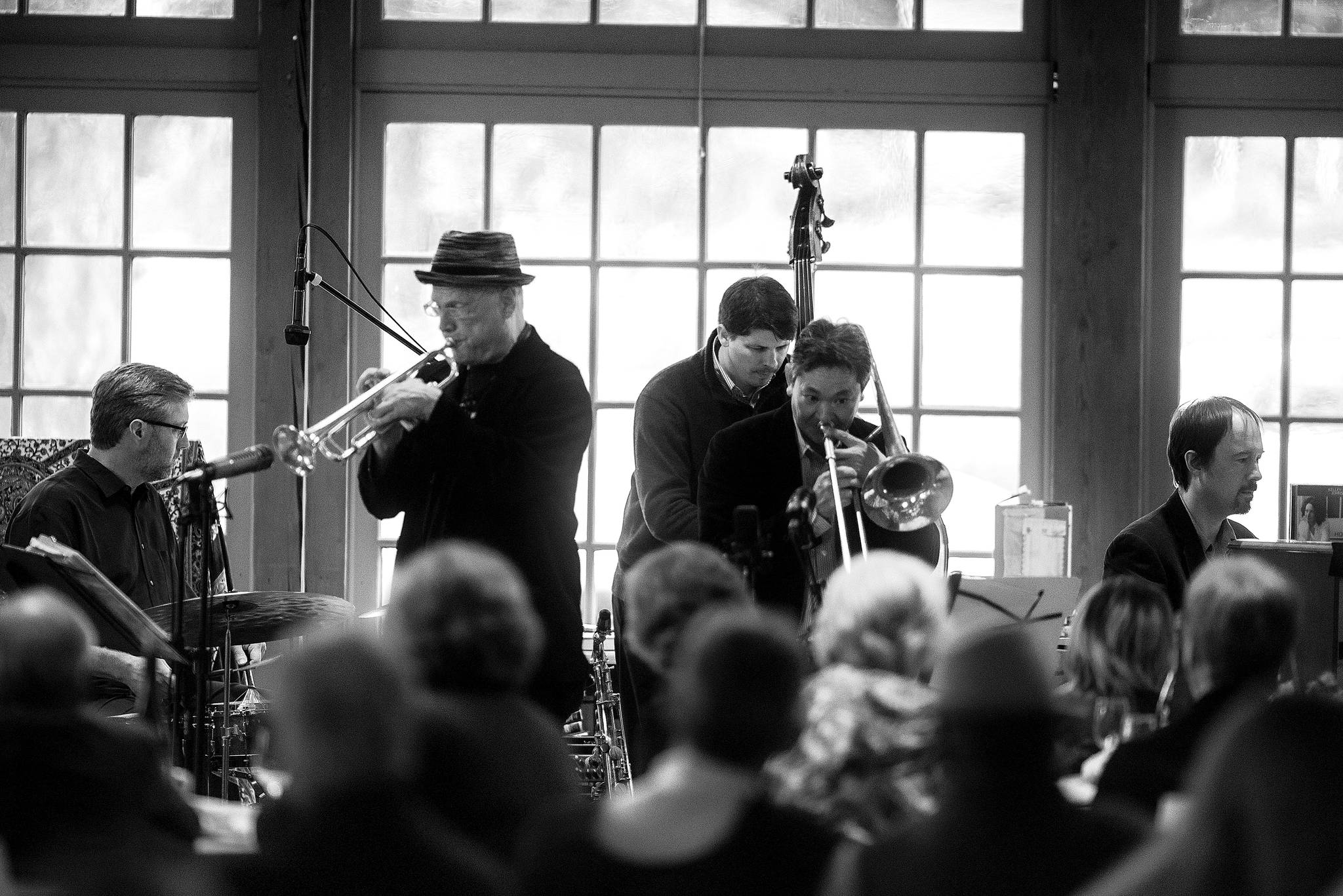Jazz will fill the quiet University of Washington Marine Laboratories campus in Friday Harbor during their 17th annual fundraiser. The event helps fund their K-12 science outreach program.
“I am an advocate for hands-on learning,” said Chris Amemiya, professor of molecular genetics at the University of Washington main campus in Seattle and leader of Seattle’s Jazz Coalescence. This will be the 13th year he has played at the Jazz at the Labs fundraiser.
The event takes place on Aug. 12 at the lab’s dining hall. A full dinner will be served at 6 p.m. and music plays until 9:30 p.m. To buy the $40 per person tickets, call 378-2165 ext. 0. Although tickets may be bought at the door, reservations are strongly recommended.
KNKX morning jazz host Dick Stein returns to emcee this year, but there will be some tweaks. Leaving more time for Stein and jazz, the live auction has been replaced by envelopes on tables, allowing attendees to donate above the $40 dinner ticket. An anonymous donor has agreed to match the pledges up to $10,000. That donation will be made to the recently established K-12 Endowment Fund for the outreach program.
Both bands playing at the labs – Jazz Coalescence and the locally renowned San Juan Jazz Quartet – have members who are scientists by day. Besides Amemiya, the former director of the labs and neuroscientist Dennis Willows is the drummer for the quartet.
“It is true that a lot of scientists play music,” Amemiya said. “I’m not sure if there is any rhyme or reason behind it though… For me, music is cathartic, a great escape.”
There is a connection between sciences and art, he added. In music, physics is involved in the direct relationship with sound, rhythm and harmony.
“Jazz definitely draws from the cerebral and visceral experiences, so perhaps that is the secret to its allure,” said Steve Korn, drummer for Jazz Coalescence, who is not a scientist.
Jay Thomas, of Jazz Coalescence, plays trumpet, saxophone and flugelhorn, which is a mellower conical version of the trumpet. He wondered if the mathematical component of music piques the scientific mind.
“All music depends on some amazing mathematics,” Thomas said. “Harmony has a lot of interesting components we keep learning about. A dominant chord to a tonic, or one cord, has a symmetry and gravity that is so profound, truly miraculous.”
Thomas said jazz flows and changes depending on players’ moods.
“Jazz is a language that allows one to express themselves in the moment with like minded souls also expressing themselves in the moment,” he said.
Thomas also explained that the roots of jazz come from thousand-year-old African rhythm traditions, European classical music and America’s indigenous folk music and blues. He credited Duke Ellington for spreading jazz around the globe by traveling through the Middle East. Amemiya,
Thomas and Korn have been part of the fundraiser for years and love the event and participants.
“The people who attend the event are really wonderful, there is a great sense of community and common cause,” Korn said, “It’s a privilege to participate.”
For more information visit fhl.uw.edu.



